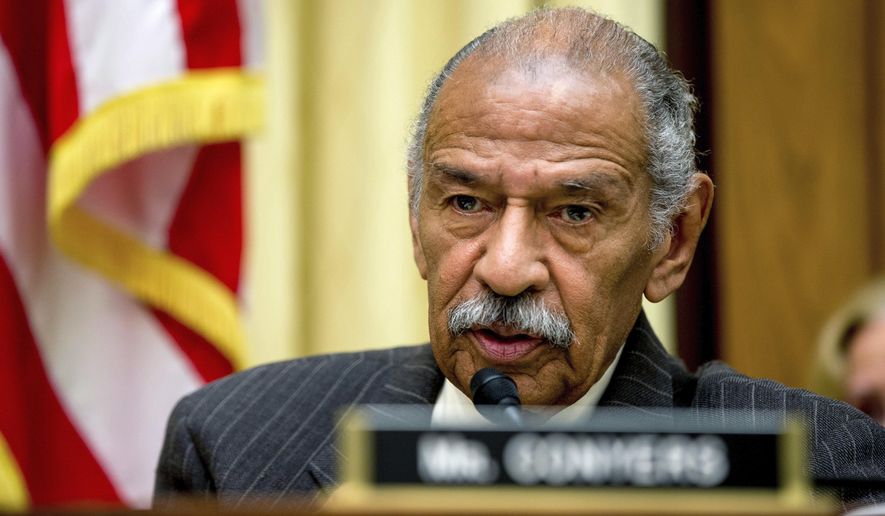OPINION:
The recently enacted tax reform law includes a provision, new tax code section 162(q), which states that employers may not deduct from business income “any settlement or payment related to sexual harassment or sexual abuse” if the settlement or payment is confidential. Attorney’s fees relating to such a settlement or payment are also non-deductible.
This provision gained a place in the tax legislation thanks to an amendment offered by Sen. Menendez, New Jersey Democrat, and it is unmistakably a reaction to the ongoing #MeToo harassment headlines. Section 162(q)’s long-term value, however, may be as a lesson that knee-jerk legislative responses to public scandals rarely make good policy.
Payments to settle lawsuits ordinarily are deductible business expenses. Those who figure that employers only settle cases when they are guilty might consider this a foolish subsidy for bad actors. Those who recognize there are often good business reasons to settle, even cases the employer would likely win, understand that settlement payments are not a particularly unusual cost of doing business.
After all, the litigation process, including court rules mandating pre-trial mediation, in many ways encourages settlements. Yet, section 162(q) discourages settlements of sexual harassment cases and, to an extent, encourages employers to take those cases to trial because the litigation costs, attorney fees, and any payments of judgments ordinarily would be deductible.
Section 162(q) not only undermines the strong public policy favoring settlements but may also disadvantage plaintiffs in sexual harassment cases. The tax penalty might discourage an employer from settling even where the plaintiff has multiple reasons for wanting to avoid a trial, including fear of risk, damage to reputation, and loss of privacy.
Strictly as an economic matter, that dynamic gives the employer negotiation leverage: the loss of a tax benefit might be offset by a lower settlement payment. Likewise, in any given case, the plaintiff might value confidentiality more highly than the employer — perhaps the plaintiff does not want her ex-spouse to know the value of a settlement deal. That, too, might give the employer an upper hand in negotiations.
Section 162(q) also leaves many questions unanswered. Does a narrow confidentiality provision — say, the parties agree not to inform the media of the settlement, or they agree to redact their identities before any copies of the pact are made — constitute a “nondisclosure agreement”? Is the aim of section 162(q) to allow a tax deduction only if everyone gets to see every word of the settlement?
That would be a radical departure from the norm that private contracts are no one else’s business. Perhaps we will see challenges that the provision, in violation of the First Amendment, compels parties to publicly “speak” about a private settlement to obtain otherwise available tax benefits.
Another unanswered question is how section 162(q) applies if a settlement resolves multiple claims, only one of which is for sexual harassment. Rarely are employment lawsuits today based on a single cause of action. Returning to the issue of nondisclosure agreements, is a payment deductible if the agreement requires confidentiality of all aspects of the settlement except for provisions resolving sexual harassment claims?
Also, is the bar on deducting attorney’s fees “related to such a settlement or payment” to be read literally as meaning that only the fees relating to the settlement process are not deductible — as opposed to the fees incurred in all other aspects of the litigation that came before settlement?
The new provision is also ineffective as a matter of policy because employers and their attorneys can easily find ways around the tax consequences. For example, no matter what a plaintiff originally alleged, the parties might concur at the time they agree to settle that the plaintiff does not allege (or no longer alleges) she was harassed, but rather is resolving only a sex discrimination claim. The incentive of a higher settlement payment might be all the plaintiff needs to cut such a deal.
In return, the employer gets a confidential agreement and a tax deduction. Or, the parties could enter two confidential agreements, one resolving a sexual harassment claim for a token value, and the other resolving all other claims for a more handsome, and fully tax deductible, payment. Section 162(q) may simply change how litigants label the claims they are settling.
The true aim of section 162(q) is, perhaps, simply to reduce the number of “secret” sexual harassment allegation settlements. A bill recently introduced in Congress known as the Ending Forced Arbitration of Sexual Harassment Act appears to have a similar objective. That Act would allow sexual harassment claimants to bring cases in federal court even if the employer otherwise requires employees to arbitrate employment disputes.
One sponsor of the Act lauded it as among “the first steps toward changing [a] deep-seated culture of sexism and silencing.” Oddly, both laws attempt to achieve publicity only in terms of the process for resolving sexual harassment claims (via settlement or via federal court trial). Nothing (apart from defamation laws) stops a victim of workplace sexual harassment from telling her story, as publicly as she wishes, before a lawsuit or charge is even initiated, perhaps with Gloria Allred at her side.
While it may not be Congress’ intent to foster voyeurism, efforts to make sexual harassment cases more public for the sake of publicity seem to be on a track to achieving that, while not really accomplishing anything for victims of workplace harassment.
• Donn C. Meindertsma is a law partner at Conner & Winters LLP in Washington.




Please read our comment policy before commenting.